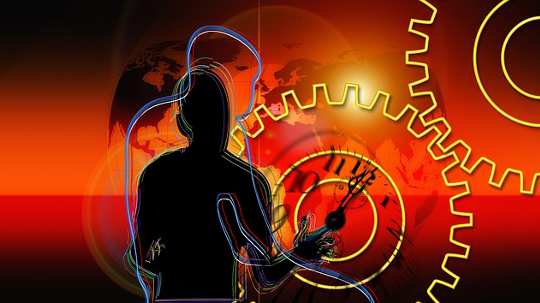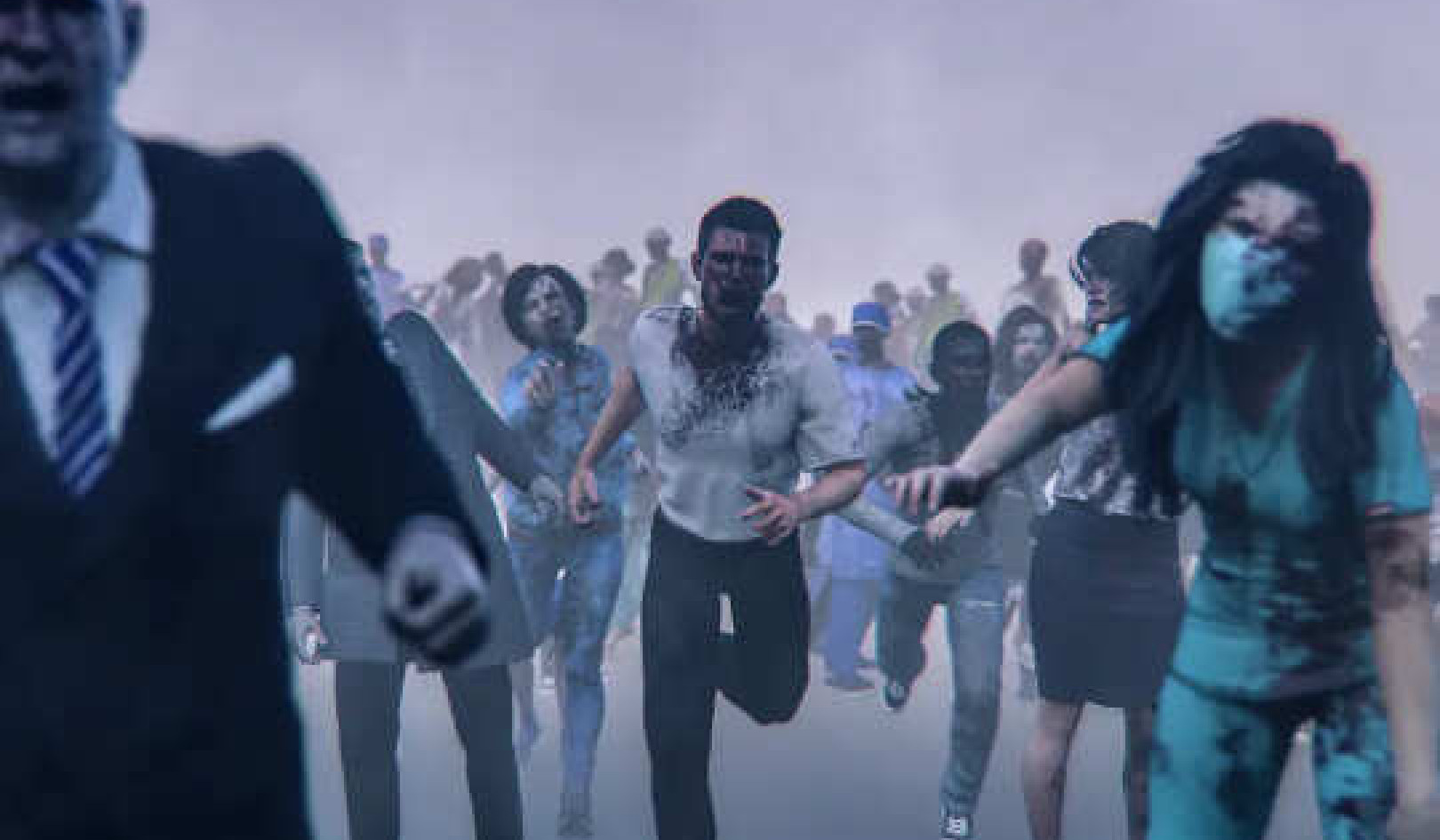
We all start out as a "closet case." We have a secret life with secret pain that we keep under wraps in this closet. We bolt the door and hide the key, keeping our dark side hidden away, and we work very hard to function over the top of that pain, fear and anguish and go on somehow with our lives, perhaps thinking we are the only ones with secret pain.
In conventional therapy -- much of which is disguised as spirituality in the West -- we get empowered, encouraged, supported, loved and affirmed in such a way that we are able to clean out that closet. The old baggage -- the past, our low self-esteem, our trauma -- all get lovingly removed, cleaned, pressed, folded, our wardrobe is updated, and the result is a closet into which the greater society and our loved ones can safely look.
In the process of true transformation, however, the authentic path tells us to leave everything in the closet alone and to not do anything with it. In addition, it casually suggests that we might want to just go sit in the closet for a while until we find a new relationship to all of the stuff in it.
Stuff in the Closet
Now neither we, nor society, nor our loved ones want a relationship to the stuff in our closet in its current condition. We want to get the hell out of the closet, leave it behind, bulldoze it under and be done with it, so that's tricky. But if we're lucky, and maybe a bit of a black sheep anyhow, we may actually try "just sitting" in it.
And perhaps we find out that it's not as bad as we imagined and we sit in there some more. Then perhaps our eyes adjust in the darkness and we start to notice things in there we hadn't seen before.
And we sit in there and sit in there and just when it seems as though it is in fact a pointless activity, one day a bolt of lightning blazes out of our boxer shorts (or some other place we least expected) and that bolt vaporizes the closet itself as the container of all this mess, shatters it into nothingness, without touching any of the stuff that's been inside it.
Coming Out of Your Closet
At that point we are wholly (and holy) "out of the closet," and even though those who come to visit us are going to judge us by the fact that the contents of our closet remain intact and unchanged, we are going to experience our own life in a very different way. We are going to see that all this stuff doesn't belong to anyone, and that we were identified with the closet itself, thinking that all this stuff was in us.
Suddenly, instead of darkness, there is going to be air, warm sunlight and acceptance -- acceptance even of the non-acceptance that used to be inside our closet and still exists, but not inside anything, not belonging to anyone or having any essential location.
The highest function of meditation is to eradicate every plank of the closet of identity such that we are no longer shielded from the open sky of reality. Then all of the stuff we'd been obsessing over and trying to change just is, but it's not in us. In fact there is no "I" that could contain it or associate itself with that content.
When we're not buffered by our closet of conditioning and mistaken identity, we simply put up an umbrella if it's raining. When it's sunny we put on a bathing suit. Life is suddenly very straightforward.
Transformation Is Knowing Who We Are
Transformation is not what happens once we've "changed"; it's coming out of the dark and seeing what we've got and relating to it appropriately and clearly. If we've got a funnel in our hands but we think it's a bucket, we're going to keep losing things we value. If we know we've got a funnel, then we stick one finger in the hole and use it like a bucket to get by in the absence of one. We're "transformed" when we fully know who we are -- or, even more important, who we are not.
The result of deep meditation is not a "result" at all, but the revealing of a condition that existed prior to our adoption of the idea that something special was needed to fix us, repair us, or restore us to happiness. The belief in our brokenness is the position from which we start making all kinds of demands on ourselves and then eventually projecting those demands onto others and all of life.
This prior condition is extraordinarily simple and free not only from the demand for wealth, stress-free living, health, popularity, excitement and true love, but essentially free from all demands and expectations. At the same time, this condition leaves us utterly free to entertain preferences, intentions and aims. This thing called transformation is simply not what we've come to think it is.
When Suzuki Roshi was once asked about enlightenment, he purportedly remarked, "What do you want to know for? You may not like it."' My own teacher, Lee Lozowick, has commented, "Realization is not very exciting. Everybody is already Realized anyway. What's the big deal? You're just exactly as you are. That's not exciting; it's simply natural."
The Path and The Goal Are One
So, yes, the path is the goal, there is nothing other than this, and looking for and expecting some kind of reward in the future is the surest way to have it elude us. Our search for "enlightenment" is about as justifiable as it would be for Newt Gingrich to be searching for unique surnames; what we're looking for is already true of us. Yet ... it generally takes time, plain old effort, and persistence to find that out, to fully open to the fact that the future payoff is not there, will never be there, and then to surrender to that as a whole-body realization. Effortless effort, as the Zen maxim goes, is required.
Meditation is the invitation we give the universe to use us, to make us a tool of revolutionary benefit to the world as it exists. To quote Lee Lozowick again, "You just need to leave a crack for God."
Meditation can be the crack, the doorway, and eventually the canyon we open in our heart and our attention for the divine so that we can be joined to the process which is all around us that we call life.
Reprinted with permission of the publisher,
Hohm Press, ©2002. www.hohmpress.com
Article Source
You Have the Right to Remain Silent
by Richard Lewis.
 Offers a comprehensive look at everything a beginner would need to start a meditation practice, including how to befriend an overactive mind and how to bring the fruits of meditation into all aspects of daily life. This book includes insights and practical examples, together with anecdotes from the lives of masters and students of many traditions.
Offers a comprehensive look at everything a beginner would need to start a meditation practice, including how to befriend an overactive mind and how to bring the fruits of meditation into all aspects of daily life. This book includes insights and practical examples, together with anecdotes from the lives of masters and students of many traditions.
Info/Order this book
About the Author
 Rick Lewis is a longtime student of spiritual work. He works as a professional writer, speaker and entertainer. His more than twenty-five years of disciplined sitting practice allow him to clarify common myths and confusions about meditation and its applications to life. He is also the author of The Perfection of Nothing: Reflections on Spiritual Practice, Confident Under Pressure: Discover the Hidden Advantages of Stress, as well as 7 Rules You Were Born to Break7 Rules You Were Born to Break. Visit his website at https://www.ricklewis.co/
Rick Lewis is a longtime student of spiritual work. He works as a professional writer, speaker and entertainer. His more than twenty-five years of disciplined sitting practice allow him to clarify common myths and confusions about meditation and its applications to life. He is also the author of The Perfection of Nothing: Reflections on Spiritual Practice, Confident Under Pressure: Discover the Hidden Advantages of Stress, as well as 7 Rules You Were Born to Break7 Rules You Were Born to Break. Visit his website at https://www.ricklewis.co/
Video with Rick Lewis: 7 Rules You Were Born to Break
{vembed Y=KPhr-fYmX5g}
books_awareness





























